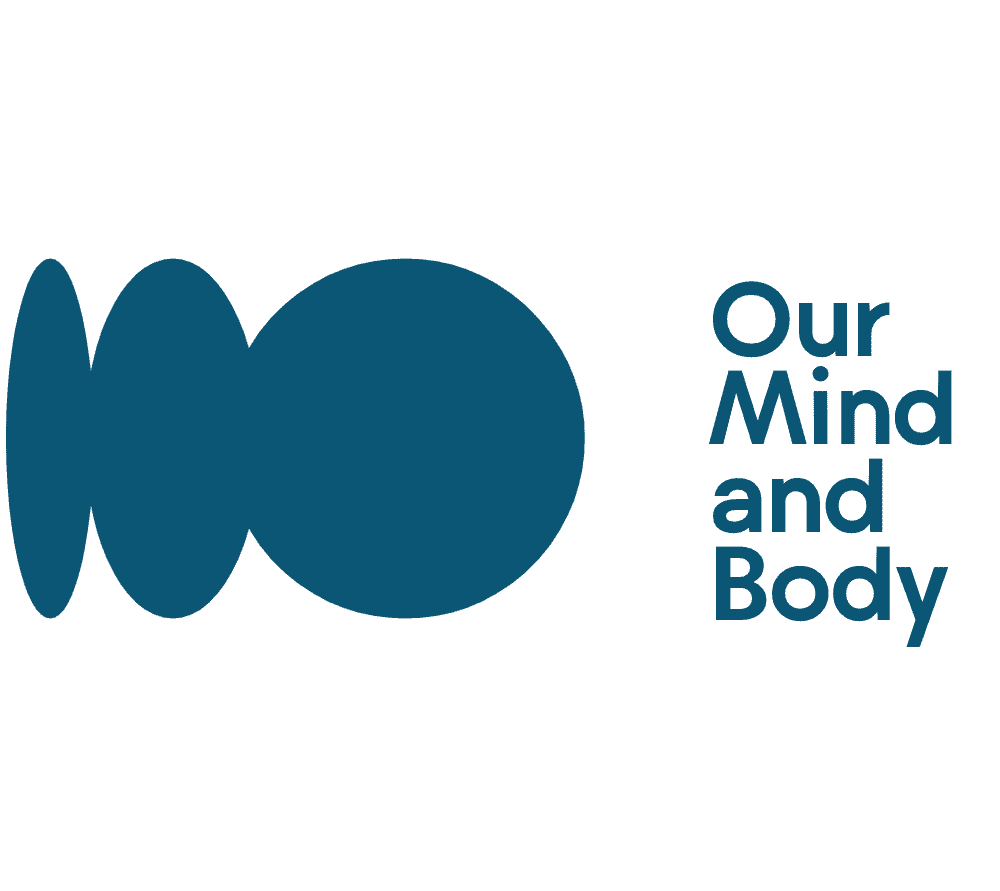Different Spiritual Practices: Mindfulness, Gratitude, and More
As a seeker of spiritual solace, I have found that exploring different practices can be a profound path to personal growth.
In this article, we will delve into the realms of mindfulness, gratitude, and more, with the intention of illuminating the transformative power they hold.
Through the power of meditation, the practice of mindfulness in daily life, and the healing benefits of gratitude, we will embark on a journey of self-discovery and inner peace.
Join me as we embrace the wisdom of ancient traditions and connect with the depths of our souls.
Key Takeaways
- Meditation and mindfulness practices, such as breathwork and visualization, help individuals find inner peace and increase present-moment awareness.
- Gratitude shifts focus from negativity to blessings, positively impacting mental health and well-being, and can be incorporated into daily life through practices like gratitude journaling and expressing gratitude to others.
- Mindfulness enhances listening skills, empathy, and communication in relationships, enabling better understanding and reducing conflict.
- Yoga philosophy and chanting/mantras promote relaxation, cultivate a meditative state, and deepen the sense of grounding and inner peace. Journaling facilitates self-awareness, personal growth, and spiritual connection.
The Power of Meditation
If you want to experience the power of meditation, you should start practicing mindfulness every day. Meditation has been a transformative practice in my life, allowing me to tap into a deeper sense of self and find inner peace.
One of the key elements of meditation is the power of breathwork. Taking the time to focus on my breath has helped me become more present and grounded in the moment. I’ve learned that by simply observing my breath, I can calm my mind and cultivate a sense of tranquility.
Another aspect of meditation that I have found immensely beneficial is visualization. During my meditation sessions, I often visualize myself in a peaceful and serene environment. This practice not only helps me relax and unwind, but it also allows me to tap into my creative imagination and manifest positive outcomes in my life. Visualizing my goals and dreams has given me a sense of clarity and motivation to pursue them with determination and passion.
The power of meditation extends beyond the moments spent in stillness. It has a ripple effect on my entire day, helping me navigate through challenges with greater ease and grace. Through consistent mindfulness practice, I have noticed a significant reduction in stress and anxiety, and an increase in overall well-being.
Meditation has become my sanctuary, a sacred space where I can connect with my inner wisdom and find solace amidst the chaos of life. I invite you to embark on this journey of self-discovery and experience the transformative power of meditation for yourself.
Cultivating Mindfulness in Daily Life
Practicing mindfulness in our daily lives helps me become more present and aware of my thoughts and emotions. It’s a practice that has truly transformed my life, and I believe it can do the same for anyone willing to incorporate mindfulness into their routine.
Mindfulness practices come in many forms, from meditation and breathing exercises to mindful eating and walking. The key is to find what works best for you and make it a regular part of your day. For me, setting aside a few minutes each morning to sit in stillness and focus on my breath has made a world of difference. It helps me ground myself before the chaos of the day takes over.
Incorporating mindfulness into my daily life has allowed me to be more present in each moment. I no longer rush through tasks or get lost in my thoughts. Instead, I am fully engaged and aware of what is happening around me. This heightened awareness has also helped me manage my emotions better. I am able to recognize when I am feeling stressed or overwhelmed and take a step back to breathe and refocus.
Practicing mindfulness is not about achieving perfection, but rather about cultivating a sense of awareness and acceptance. It’s about being kind and compassionate with ourselves and others. So, I encourage you to explore different mindfulness practices and find what resonates with you. Incorporate mindfulness into your daily life and witness the positive impact it can have on your overall well-being.
The Healing Benefits of Gratitude
Gratitude has been a transformative practice in my own life, especially when it comes to my mental health. Cultivating a daily practice of gratefulness has allowed me to shift my focus away from negativity and towards the blessings in my life.
Not only has this had a profound impact on my well-being, but it has also strengthened my relationships. Expressing gratitude towards others fosters a sense of connection and appreciation.
Gratitude and Mental Health
You can enhance your mental health by incorporating gratitude into your daily routine. Gratitude is a powerful tool that has the ability to transform our perspective and bring more happiness into our lives.
When we practice gratitude, we shift our focus from what is lacking to what we already have, and this shift in mindset can have a profound impact on our overall well-being.
There are many ways to incorporate gratitude into your daily life. One simple practice is to keep a gratitude journal, where you write down three things you are grateful for each day. Another practice is to express gratitude to others, whether through a thank-you note or simply telling someone how much you appreciate them.
Cultivating Gratefulness Daily
To cultivate gratefulness daily, it’s important to find small moments of joy and appreciate them fully. Life can be challenging, and it’s easy to get caught up in the stress and negativity. But by intentionally seeking out moments of gratitude, we can shift our perspective and bring more positivity into our lives.
One way I practice this is through daily affirmations. I take a few minutes each morning to reflect on what I’m grateful for and set positive intentions for the day. It helps me start my day with a grateful heart and a positive mindset.
Additionally, practicing compassion towards myself and others is another important aspect of cultivating gratefulness. By being kind and understanding towards ourselves and others, we create more space for gratitude to flourish.
Impact on Relationships and Well-Being
When we cultivate gratefulness daily, it not only impacts our own well-being but also our relationships with others. Practicing mindfulness and gratitude can have a profound effect on how we communicate and connect with those around us.
Here are some ways in which mindfulness can positively impact our communication and relationships:
-
Enhanced Listening: Mindfulness helps us become fully present and attentive, allowing us to truly listen and understand others without judgment.
-
Improved Empathy: By cultivating mindfulness, we develop a deeper sense of empathy towards others, which enhances our ability to understand and relate to their experiences.
-
Reduced Conflict: Mindfulness allows us to respond to challenging situations with clarity and compassion, minimizing conflicts and promoting healthier communication.
The benefits of mindfulness extend beyond our relationships. It can also improve our overall well-being by reducing stress, enhancing self-awareness, and promoting a sense of gratitude.
Exploring the Path of Yoga
If you’re looking to delve into the path of yoga, there are numerous resources available to guide your journey. Yoga philosophy is a rich and ancient tradition that offers insights into the nature of reality, the self, and the interconnectedness of all beings.
As you explore the different aspects of yoga, you’ll likely come across the term ‘asanas.’ These are the physical postures that are commonly associated with yoga practice. They not only help to cultivate strength and flexibility in the body, but also serve as a gateway to a deeper understanding of oneself.
As you engage in the practice of asanas, take the time to observe the sensations in your body, the thoughts in your mind, and the emotions that arise. Notice how each posture affects your energy and your state of mind. This mindful exploration can lead to a heightened sense of self-awareness and a deeper connection to the present moment.
As you develop your yoga practice, you may find yourself naturally drawn to the beauty and tranquility of nature. Connecting with nature can be a powerful way to deepen your spiritual experience and cultivate a sense of eco-spirituality. This connection can be as simple as taking your practice outside, practicing your asanas in a park or by the beach, or spending time in nature, observing its rhythms and cycles.
Transitioning into the next section about ‘connecting with nature: eco-spirituality,’ you may find that the practice of yoga opens up a new awareness of the interconnectedness of all beings and the importance of living in harmony with nature.
Connecting With Nature: Eco-Spirituality
Take a moment to step outside and immerse yourself in the natural world, allowing the beauty and tranquility of nature to deepen your spiritual experience. Connecting with nature has always been a source of solace and inspiration for me. Nature walks have become a sacred practice, a way to ground myself and find peace amidst the chaos of daily life.
As I wander through the woods or stroll along the beach, I can’t help but feel a sense of awe and wonder at the intricate beauty that surrounds me. It’s as if every tree, every blade of grass, every wave crashing against the shore is whispering a message of interconnectedness and harmony.
Embracing eco-spirituality has not only deepened my connection with nature but also awakened a sense of environmental stewardship within me. Being in nature has made me acutely aware of the fragile balance that exists in our ecosystems. It has reminded me of the importance of preserving and protecting our planet for future generations.
Through this lens, I have become more conscious of my actions and the impact they have on the environment. I strive to live in harmony with nature, making choices that minimize my carbon footprint and support sustainability.
Nature, in its infinite wisdom, has so much to teach us if we are willing to listen. It is a powerful reminder of our interconnectedness, not just with the natural world but with each other. By immersing ourselves in nature and embracing environmental stewardship, we can cultivate a deeper sense of spirituality and contribute to the well-being of our planet.
Embracing the Wisdom of Ancient Traditions
Embracing the wisdom of ancient traditions can offer valuable insights and guidance for navigating our modern lives. In a world that is often fast-paced and filled with distractions, turning to the wisdom traditions and ancient practices can provide a sense of grounding and inner peace.
These traditions have been passed down through generations, carrying with them the collective wisdom of our ancestors.
One such ancient practice that has gained popularity in recent years is mindfulness. Stemming from Buddhist traditions, mindfulness encourages us to be fully present in the moment, cultivating awareness and acceptance of our thoughts and emotions. By practicing mindfulness, we can develop a greater sense of self-awareness and learn to live with intention and purpose.
Gratitude is another ancient practice that can greatly enhance our lives. It is a simple yet powerful tool that reminds us to appreciate the blessings and abundance that surround us. By cultivating a gratitude practice, we can shift our focus from what is lacking to what we already have, fostering a sense of contentment and joy.
Incorporating these ancient practices into our modern lives allows us to tap into the timeless wisdom of our ancestors. By embracing these traditions, we can find guidance and solace amidst the chaos, ultimately leading to a more fulfilling and meaningful existence.
Finding Peace Through Chanting and Mantras
To find inner peace and tranquility, try incorporating chanting and mantras into your daily routine. These ancient practices have been used for centuries to calm the mind and promote relaxation. Exploring the power of mantras can help you tap into a deeper sense of self-awareness and connect with your inner being.
Here are three ways chanting and mantras can enhance your well-being:
-
Relaxation Techniques: Chanting is a powerful relaxation technique that can help you release stress and tension. By focusing on the rhythmic repetition of sounds or words, you create a meditative state that allows your mind to let go of worries and distractions. This practice can bring a sense of calm and serenity to your day.
-
Mindful Breathing: Chanting often involves deep breathing, which can help you become more mindful of your breath. As you chant, you naturally synchronize your breath with the rhythm of the chant, bringing your attention to the present moment. This mindful breathing can reduce anxiety, improve focus, and promote a sense of grounding.
-
Positive Affirmations: Mantras are powerful affirmations that can shift your mindset and uplift your spirit. By repeating positive statements, such as ‘I am calm and at peace,’ you can rewire your thoughts and invite more positivity into your life. These affirmations can help you cultivate a more positive outlook and build resilience in the face of challenges.
Incorporating chanting and mantras into your daily routine can be a transformative practice that brings peace and balance to your life. Take a few moments each day to immerse yourself in the soothing sounds and explore the power of these ancient techniques.
Self-Reflection and Journaling for Spiritual Growth
When it comes to enhancing spiritual growth, self-reflection and journaling have been invaluable tools in my own journey.
Journaling not only allows me to express my thoughts and emotions, but it also helps me gain clarity and perspective on different aspects of my life.
Through self-reflection techniques, such as asking myself thought-provoking questions or engaging in meditation, I’ve been able to deepen my understanding of myself and my connection to something greater.
Benefits of Journaling
One of the benefits of journaling is that it can help reduce stress and anxiety. When we take the time to write down our thoughts and feelings, we give ourselves the opportunity to process and release the emotions that may be weighing us down. Journaling can provide a sense of relief and clarity, allowing us to gain a better understanding of ourselves and our experiences.
Some techniques that can enhance the benefits of journaling include:
- Freewriting: Allowing your thoughts to flow freely without judgment or censorship can help uncover deeper insights and emotions.
- Gratitude Journaling: Focusing on the things we are grateful for can shift our mindset and bring more positivity into our lives.
- Reflective Journaling: Taking the time to reflect on our experiences and lessons learned can promote personal growth and self-awareness.
Self-Reflection Techniques
Using self-reflection techniques in journaling can lead to a deeper understanding of ourselves and promote personal growth. Journaling is not just about writing down our thoughts and experiences; it is a powerful tool for self-discovery and self-awareness.
By engaging in specific journaling techniques and self-awareness exercises, we can gain valuable insights into our emotions, beliefs, and behaviors.
One effective technique is to create a two-column table in our journal. In the first column, we can write down our thoughts, feelings, and experiences. In the second column, we can critically analyze and reflect on what we have written. This process allows us to examine our thoughts and emotions from a more objective perspective, enabling us to identify patterns, triggers, and areas for growth.
Another technique is to ask ourselves probing questions in our journal. These questions can delve into our values, goals, fears, and dreams. By answering these questions honestly and thoughtfully, we can gain clarity about our desires and aspirations, as well as uncover any limiting beliefs or fears that may be holding us back.
Ultimately, self-reflection techniques in journaling provide an opportunity for deep introspection and self-discovery. They allow us to explore our inner world, gain insight into our thoughts and emotions, and make meaning out of our experiences.
Enhancing Spiritual Growth
To enhance your spiritual growth, it’s important to explore various techniques and find what resonates with you. Each person’s spiritual journey is unique, and what works for one may not work for another.
Here are three practices that have personally enriched my own spiritual growth:
-
Mindfulness: Practicing mindfulness allows me to be fully present in the moment and connect with my inner self. It helps me cultivate awareness and acceptance of my thoughts, emotions, and experiences.
-
Gratitude: Expressing gratitude on a regular basis has been transformative in my spiritual journey. It has taught me to appreciate the small blessings in life and shift my focus towards positivity and abundance.
-
Healing Crystals: Incorporating healing crystals into my spiritual practice has brought a sense of grounding, balance, and healing energy. Each crystal holds unique properties and can help support specific intentions or areas of healing.
Exploring practices like shamanic rituals can also be a powerful way to deepen your spiritual connection. These rituals often involve connecting with nature, working with plant medicine, and journeying into altered states of consciousness. They can provide profound insights, healing, and spiritual growth.
Frequently Asked Questions
What Are Some Common Mindfulness Techniques That Can Be Practiced Throughout the Day?
Throughout the day, there are various mindfulness techniques that can bring immense benefits. Being present in the moment is key. Take a few deep breaths, focusing on the sensation of the breath entering and leaving your body. Engage your senses fully, noticing the sights, sounds, and smells around you.
Practice gratitude by acknowledging and appreciating the little things. Pause and observe your thoughts and emotions without judgment. These simple practices can help cultivate mindfulness throughout your day.
How Can Gratitude Improve Our Overall Well-Being?
Gratitude as a daily practice has the power to transform our overall well-being. Cultivating a grateful mindset allows us to shift our focus from what is lacking in our lives to what we already have.
It helps us appreciate the present moment and find joy in the simple things. By practicing gratitude, we invite positivity and abundance into our lives, fostering a sense of fulfillment and contentment.
It is a powerful tool that can bring about profound changes in our mental and emotional state.
Are There Any Specific Yoga Poses or Sequences That Are Recommended for Beginners?
When starting out with yoga, it’s important for beginners to focus on poses and sequences that are gentle and accessible.
Some recommended yoga poses for beginners include mountain pose, child’s pose, and downward facing dog. These poses help to build strength, improve flexibility, and promote relaxation.
As for sequences, it’s best to start with a simple flow that incorporates these poses, gradually increasing the intensity as you become more comfortable and confident in your practice.
What Are Some Practical Ways to Incorporate Eco-Spirituality Into Our Daily Lives?
Incorporating eco-spirituality into our daily lives can be a transformative experience. It involves finding ways to live sustainably and connect with nature for spiritual growth.
From reducing waste and conserving energy to practicing gratitude for the natural world, there are practical steps we can take.
Spending time outdoors, gardening, or even participating in environmental activism can deepen our connection with the Earth and foster a sense of interconnectedness.
How Can Chanting and Mantras Help in Finding Inner Peace and Tranquility?
Chanting and mantras have been powerful tools in my quest for inner peace and tranquility. The rhythmic repetition of sacred words or sounds has a soothing effect on my mind and body, allowing me to relax and let go of stress.
Conclusion
As I reflect on the various spiritual practices discussed in this article, I am filled with a sense of wonder and curiosity. The power of meditation, the beauty of mindfulness, and the healing benefits of gratitude – these practices hold the key to unlocking a deeper connection with ourselves and the world around us.
But there is still so much more to explore. What other ancient traditions can teach us? How can we further embrace nature and eco-spirituality? The possibilities are endless, and the journey towards spiritual growth is an ongoing one.
So let us continue to delve into these practices, with open hearts and open minds, and let the transformative power of spirituality guide us towards a more meaningful and fulfilling life.













